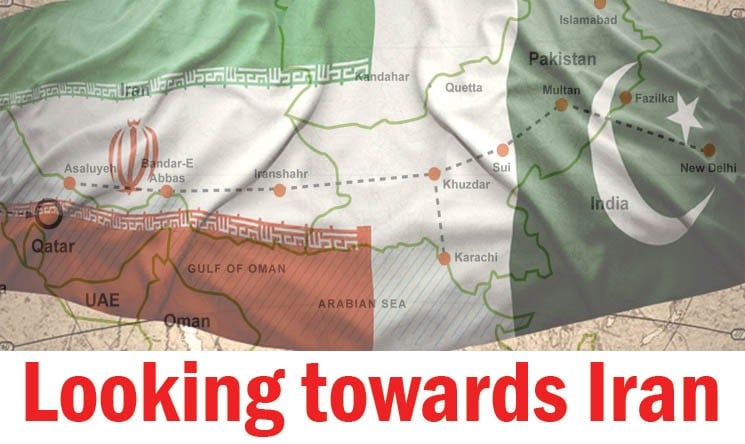
Focusing on the potential and pitfalls of trade between Pakistan and Iran

Iranian President Hassan Rouhani came to Pakistan for two days last week. During the visit, he signed many Memoranda of Understanding (MoUs) pertaining to trade and commerce. Around the same time, Pakistan announced its trade policy for the next three years that puts a premium on enhancing trade volume with Iran.
The visit of the president of a key Pakistani neighbour, with which it shares a 900 kilometre border, is significant for many reasons. It is the first ever visit by Rouhani and that, too, after the US sanctions on Iran have been lifted. That there has been talk of possibility of trade ties between the two countries is quite heartening since the volume of trade between the two neighbours has been negligible.
In the last three decades or so, Pakistan has developed stronger ties with the Arab Gulf countries. This was done for geopolitical reasons largely but it meant huge economic dividends for Pakistan. To be fair, Pakistan never let its diplomatic ties with Iran slacken, which was only proper considering the vast majority of Shia population within Pakistan.
Though some might think the rather open declaration of improving the ties even further by hinting at the possibility of revival of Iran Pakistan gas pipeline, import of electricity, etc., has come at an inopportune time. Pakistan has recently counted itself in a 34-member military alliance "against terrorism" of Muslim countries led by Saudi Arabia which is seen even within the Muslim world as more of a Sunni alliance against the Shia world.
A week before Rouhani’s visit, the Iranian ambassador to Pakistan had expressed his displeasure over the 34-member alliance and called it ridiculous and anti-Shia but, thankfully, the atmospherics remained pleasant during the visit. The president did not express any reservations in his statement. One doesn’t know what assurances have been given to the Iranian president but Pakistan will have to continue to walk the tight rope if it wants sustainable trade ties with Iran.
Today’s Special Report is all about the potential and the pitfalls that the trade ties between the two countries carry. We have tried to look at different sectors in individual articles, the informal trade that continues unabated, the possibility of people-to-people contacts, the visa issues, etc.
A lot of this potential rests heavily on peace in the Balochistan province but, unfortunately, there is no independent media left in the province to report the real situation.
Whatever the pitfalls, trade and good relations with Iran mean well for Pakistan and we hope that the promises and the MoUs will translate into reality.